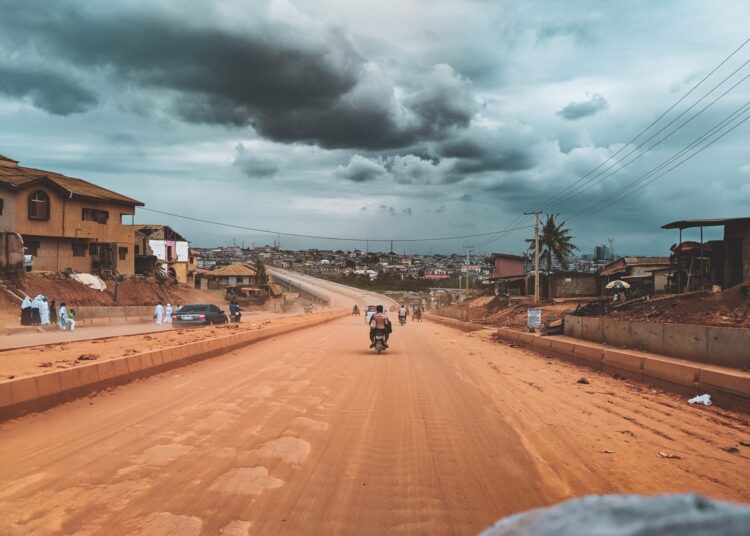Issues around climate change have dominated global conversations since the historic Paris Agreement reached by world leaders on December 12, 2015 at the UN Climate Change Conference (COP21) in Paris. The Agreement is an international treaty which became legally binding on November 4, 2016.
Since climate change poses a huge threat to our humanity, urgent action is required to mitigate its risks and negative impacts for a sustainable future. This perhaps explains why 195 Parties (194 States and the European Union) joined the Paris Agreement which set long-term goals to guide all nations as follows: reducing global greenhouse gas emissions, periodically assess the collective progress being made, and provide financing to developing countries to mitigate the impact of climate change, strengthen resilience and enhance abilities to adapt to climate impacts.
The United Nations and its agencies and partners (they include UNEP, UNFCCC, etc.), the World Bank, International Monetary Fund (IMF), and the Intergovernmental Panel on Climate Change (IPCC) are huge resources to guide any study on climate change.
Generally speaking, climate change refers to “long-terms shifts in temperatures and weather patterns,” according to information available on the UN website. “But such shifts can be natural due to changes in the sun’s activity or large volcanic eruptions,” the statement continued.
In Nigeria, we have experienced severe flooding, drought and extreme temperatures lately. These are the consequences of climate change. Other parts of the world are also experiencing the devastating impact of climate change in various dimensions.
The National Assembly passed the Climate Change Bill in 2021 and signed into law by former President Muhammadu Buhari. With this law, the expectation is that Nigeria will achieve net zero carbon emission between 2050 and 2070. To drive a coordinated action on climate change, the same act of parliament created the National Council on Climate Change (NCCC).
Last month, President Bola Ahmed Tinubu established a presidential committee on climate action and green economy. The initiative clearly underscores the need to strengthen our commitment to climate change, especially from the standpoint of accelerating the transition from fossil fuels to renewable energy that are derived from natural sources such as the sun and wind.
The beauty of renewable energy is that they are constantly being replenished which guarantees a sustainable future.
UN Reports indicate that human activities have been the main driver of climate change, primarily due to the burning of fossil fuels like coal, oil and gas. When fossil fuels burn, they generate greenhouse gas emissions that cast a blanket around the Earth, trapping the sun’s heat and raising temperatures.
The same Report says if we cannot keep global warming from rising above 1.5°C, then we are in real danger of being exposed to more heat from the sun. The solution is to reduce the dependence on fossil fuels, cutting it by half within the next six years and achieving net zero emission by 2050. Whether these goals would be achieved is a matter of conjecture.
Fossil fuels, as studies have shown, are the biggest contributors to the global climate change crisis, and poses severe risks to all forms of life. For the record, the main greenhouse gases are carbon dioxide and methane. For a moment, just imagine the volume of carbon emissions from the cars on our roads and electricity generators in Nigeria. The result is catastrophic air pollution that endangers our health.
Clearing land and cutting down forests can also release carbon dioxide, according to UNEP reports. Agriculture, oil and gas operations are major sources of methane emissions. Energy, industry, transport, buildings, agriculture and land use cause greenhouse gases.
Apart from the Paris Agreement, there are other global agreements such as the Sustainable Development Goals (to make the world a better place by 2030) and the UN Convention on Climate Change to guide progress. However, an SDG Report in 2022 revealed that about two billion people worldwide don’t have access to safe drinking water. If we consider the effects of climate change and a growing population, it means that number is likely go up.
We must understand that climate change hazards do not occur in isolation because the Earth is a system – just like the human body – where everything is connected. It means changes in one area, according to a report by the Intergovernmental Panel on Climate Change (IPCC), can influence changes in others.
It is why the consequences of climate change now include, among others, threats to our health, intense droughts, water scarcity, severe fires, rising sea levels, flooding, melting polar ice, catastrophic storms and declining biodiversity. The World Meteorological Organisation (WMO) and the United Nations Environment Programme (UNEP) set up the IPCC in 1988.
In a self-made climate change manual, you should include and learn about the effects of climate change which varies depending on your region. You should also add sustainable solutions that include reducing carbon emissions, slowing the pace of global warming, and transition from fossil fuels to clean energy sources.
The manual should note adaptation as a mitigation strategy that delivers economic benefits while also seeking climate justice in the sense that small island nations and developing countries must be supported financially. These countries have fewer resources to cope with the devastating effects of climate change.
When my associates at Climate Action Africa (CAA) decided to launch Climate Action Africa Forum (CAAF24), I took more than a passing interest in climate change and commenced a research on the intersection between climate action and sustainable development.
– Braimah is a global public relations consultant and marketing strategist. He is also the publisher/editor-in-chief of Naija Times (https://ntm.ng) and Lagos Post (https://lagospost.ng), and can be reached via [email protected].





